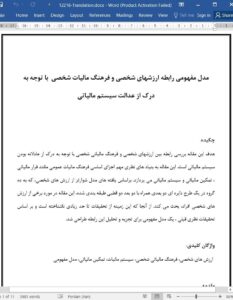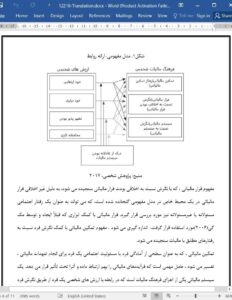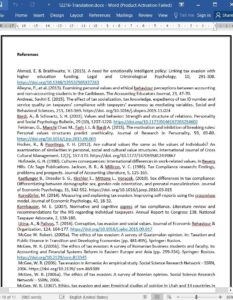Abstract
The purpose of this paper is to explore the relationship between personal values and personal tax culture regarding the perception of a tax system’s fairness. The paper deals with the main theoretical starting points of the fundamental cornerstones of the general tax culture such as tax evasion, tax compliance and tax system. Based on findings in Schwartz's model of personal values, the paper discusses some of individual personal values, categorized into ten groups within a two-dimensional circular design, along two bipolar dimensions. Because this field of research is largely unexplored and based on the previous theoretical research, a conceptual model for analysing this relationship was developed.
Conclusion
According to the review of scientific literature on the main cornerstones, included in the developed model for analyzing the relationship between personal values of the individual and the personal tax culture, in view of the perception of the tax system fairness, both the theoretical and the empirical gap in the field of research are perceived. The increasing importance of personal values, which are physical, mental and behavioral characteristics by which individuals differ from one another, affects the socially responsible behavior of an individual. In the literature, though, there are no studies of the connection of personal values with an individual's personal tax culture. That is why we designed a conceptual model that would include both the individual's tax culture, as well as personal values of the individual. In their work, individual authors have already been defining and empirically proving individual cornerstones of tax culture, especially at the macroeconomic level; the developed model, however, connects all the cornerstones with personal values. In further research, empirical research can be carried out on the basis of a conceptual model and a designed questionnaire in several different countries. Therefore, a comparison of the results of individual countries will be possible.










